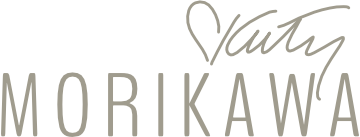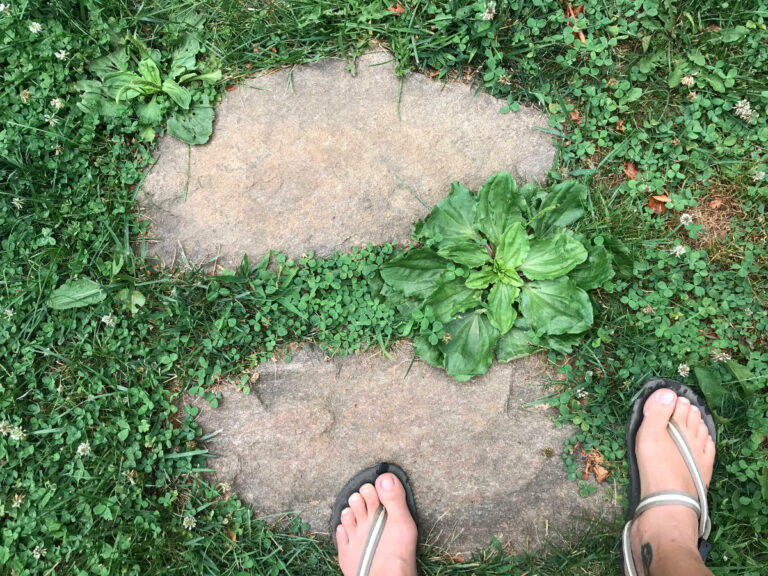I am neither a cancer researcher, nor trained in medicine. This should not be construed as medical advice but as social commentary.
Audio
Or find the audio wherever you get your podcasts.
The first two posts in this series, Cancer Is A Symptom, and Cancer Is A Symptom II: With Roots in the Heart looked at both sensory deadening and dissociation from the heart as key contributors to humanity’s continued reliance on materials and solutions which use carcinogenic substances. Both posts offered remedies: to reawaken the senses and to activate the wisdom of the heart.
Now I would like to draw a much more explicit line between the closed heart and our increasingly toxic human-created world. We see this connection most clearly in the all-too-common decisions which place people in harm’s way for the sake of profits, power, and convenience. While a relatively small (elite) group of people tend to make the vast majority of these decisions, we as a collective permit them to go on. Not only do we shrug, look the other way, or wave our hands helplessly, but we continue to promote to positions of power people of very low conscience! Brian Klaas has done some entertaining research on the subject of power and corruption and the ways most systems both reward and foster ruthlessness in positions of power. But regardless of Klaas’ conclusions, I think that if you check in with yourself honestly, you’ll recognize that some deep primitive part of our minds loves and admires ruthless strongmen (and women).
For if we rose up with clarity and passion and said, “No more!” verily we could change those social norms and institutions that prosper the unethical. We outnumber them thousands to one, no matter the vastness of their wealth, power, and ingenuity. But…somewhere deep inside we may still believe we really need that cunning and ruthless leader. And if not now, then someday, and therefore that we should preserve its legacies within the human family tree. They are very effective. And entertaining. Let’s face it, whatever you think about Dick Cheney, the man has chutzpa. And check out the woman above – this is Eileen Drake, the CEO of a weapons manufacturer. She belongs on t.v.! I used to have a link to her company statement, but the company has since rebranded to look more people-friendly and she appears to have moved on.

It’s been observed and argued by social and evolutionary scientists that sociopathy is with us for a reason: it has served humanity’s survival needs for millennia. But I believe we have a choice in the matter and sit at the crossroads, brought here by the ecological crisis these social values have authored. And I don’t believe that we would a) permit this shit, or b) reward the ruthless with promotion to high office–if our hearts were truly open and awake.
Now, as population pressures have pushed our modern cultural institutions up against the bitter edge of nature’s resilience, and we risk not only polluting the Earth beyond the lifespan of our children’s grandchildren and creating all new illnesses in our growing toxic soup, we are incurring grave moral debts which one day we will have to repay. The implications extend not just to cancer but far beyond it. It is a wake up call for the eye of the heart. So, in service to that, I am going to try to paint a clear bright line to follow, even though the subject matter is grim. And I don’t like doing grim. But if the Devil is in the school yard, you had better be willing to point him out.

It turns out that depleted uranium makes a cheap and highly effective armor-piercing bullet, conveniently recycles those hard-to-dispose and -store leftovers from nuclear reactors and weapons, and turns a tidy profit to boot! We used a LOT of them during the 1991 Gulf War (between 315 and 350 tons) [1], under then Secretary of Defense Dick Cheney’s leadership [2]. As a consequence, a whole generation of American soldiers, and Saudi, Kuwaiti, and Iraqi men, women, and children developed an array of autoimmune diseases and cancers, though the DoD continues to refute and deny this connection.[3][4] (Of course they do.) I have a friend who served in the U. S. Navy during the 1990’s. I’ll never forget his bemused descriptions of the big munitions they had to handle–all marked with the radioactive trefoil. These were not nuclear weapons, but bullets cased in radioactive metal, and he handled them all the time without protection, like the young men in the photo above. He told me stories of the locals going into the desert after the war to collect the spent metals for salvage value and getting sick and dying from handling them without protection. Despite international efforts to outlaw DU weapons, the U.S., U.K. and other NATO countries continue to use them.[5]

In the wake of the post-911 invasion of Iraq, the rate of truly bizarre and frightening mutations among Iraqi babies only continues to grow.[6][7] (Click a link below and look, if you dare). Most people in these bombarded countries, uninformed of the dangers, just rebuild on top of the contaminated ruins. There is a lot of spent radioactive ordinance–6 billion bullets according to the U. S. General Accounting Office between 2002 and 2005 alone.[8] Since then, the U.S. has made zero clean-up and containment efforts.
- https://theintercept.com/2019/11/25/iraq-children-birth-defects-military/
- https://www.aljazeera.com/features/2013/3/15/iraq-wars-legacy-of-cancer
I don’t believe that we would a) permit this shit, or b) reward the ruthless with promotion to high office–if our hearts were truly open and awake.
Reading the Wikipedia article on the legal status of depleted uranium weapons is a depressing study in double-speak and legal run-arounds of an issue that is eminently clear to the heart. You would surely never have entertained the idea of using depleted and still radioactive uranium to manufacture products intended for handling by people and certain to contaminate the ground where they lay. If you did, you would certainly stop after witnessing the after-effects of the first Gulf War (which included not just Gulf War Syndrome among American service men and women, but a dramatic uptick in cancers and babies born with mutations in the general local populace), rather than cover up, deny, and continue to authorize use of these weapons.
Then again, I have known about this for decades and am only now recognizing the moral imperative to do something about it. How often do we turn a blind eye, hear but don’t act, make problematic decisions ourselves for the sake of expediency or profit or need? We are all bound up together in a vast interlocking array of systems and decisions, many of them justified by utilitarian, economic, and survival imperatives.

At this point, if if you’re sitting in despair and depression, you won’t be alone. But I would like to invite you to pivot. First of all, if you are depressed, congratulations! You have opened the eye of the heart enough to see how sad this all is. Now your depression can become the fuel to motivate you to strengthen the heart as a muscle. Like with cardio exercise, this work has many protective benefits: including improving mood, improving hope and faith, improving a sense of empowerment, courage, calm and focus. Like cardio exercise, it takes regular practice, some effort, and discomfort especially at first. But after a while, you’ll grow to crave it.

10 WAYS TO STRENGTHEN THE HEART AS A MUSCLE
Even if only in one small way at first, do something for the sake of love where you might do otherwise for personal benefit, convenience, or in self-defense. Make it count a little. You don’t have to take on this particular issue with DU weapons–unless you’re called to moral outrage, especially if you went and looked at those babies–but do at least one thing that is a little harder for you.
Here are some examples which span a spectrum of difficulty and areas of life, but I encourage you to use them as inspiration for finding your own heart’s exercises. Pick one thing that is both a bit of a challenge and still doable. After you’ve made it part of your lifestyle, add something new in a different area.
- Pay your people more than you can get away with based on local market conditions.
- Stop squashing bugs you find in your house, but make an effort to take them outside.
- When people perform services for you (waiters, fast food servers, cashiers, phone support, and so on), remember that they are human beings with complex lives and feelings, and make sure to thank them sincerely and talk to them like a real person.
- If you find yourself in a position to screw over the competition or someone you’ve contracted for services, find something more constructive to do with your advantage (use your imagination).
- Stop eating commercially farmed pork, beef, or chicken (pick one) and replace it with locally farmed meat or a meat substitute. Share your choice and the reasons for it with your friends. (Check out these Wikipedia articles for background information: Intensive pig farming, Intensive animal farming, Feedlot).
- Stop eating maguro sushi and sashimi and all bluefin tuna meat. (Sorry for being such a bore about ocean ecology, this ties back to that last article Cancer Is A Symptom II: With Roots in the Heart, Episode 14 on the podcast.)
- The next time you make an enemy, no matter the reason, find a way to forgive them and let go. If this feels impossible to you, hang in there with sincere intention until you have a genuine change of heart. (This can be lifechanging, don’t expect it to happen overnight).
- Choose a group you dislike severely and try to learn more about them. Lean in with curiosity and be open to finding ways to admire or like them. Hang in there until you can no longer denigrate them reflexively.
- The next time you’re having a bad day and someone pisses you off, try to find a way to help them out – be generous with your time and attention.
- Commit to speaking up whenever your friends (in private) make racist, homophobic or transphobic comments or jokes. Commit to doing it without cancelling anyone, without making more enemies, and without putting yourself above anyone else. You might feel utterly uninformed on the nuances of politcal correctness around the issue and intimidated by that, but don’t be deterred. The climate is a little inflamed out there, but muster on. If you keep your efforts gentle and simple and this will go a long way (e.g., resist the soap box).
- What are your ideas for strengthening the heart as a muscle? Put yourself on the receiving end of your efforts. Does it feel like love to you? If so, then do it.

The way of the heart is not for the faint of heart (excuse the pun), but it will reward you in ways that may surprise you. Living from a place of love is a gift that is freely available to all. No special intelligence, talent, wealth, or luck is required. Let me know about your journeys in courage, conviction, generosity, kindness, and forgiveness. Not only can we can overcome the challenges we face as a global society by exercising the heart as a muscle, but we can enjoy the inner peace, joy, and resilience which are our birthright.
References
- Depleted uranium. In Wikipedia, The Free Encyclopedia. Retrieved 03:33, February 23, 2022, from https://en.wikipedia.org/w/index.php?title=Depleted_uranium&oldid=1072101568
- Dick Cheney. In Wikipedia, The Free Encyclopedia. Retrieved 00:32, March 9, 2022, from https://en.wikipedia.org/w/index.php?title=Dick_Cheney&oldid=1075112954
- Depleted uranium. In Wikipedia.
- Fahey, D. (May 1999). “Depleted Uranium Weapons: Lessons from the 1991 Gulf War.” Depleted Uranium: A Post-War Disaster, Part 7. Laka Foundation. Retrieved February 22, 2022 from https://www.wise-uranium.org/dhap992.html
- Depleted uranium. In Wikipedia.
- Jamail, D. (March 15, 2013). “Iraq: War’s legacy of cancer.” Aljazeera. Retrieved February 22, 2022 from https://www.aljazeera.com/features/2013/3/15/iraq-wars-legacy-of-cancer
- Hussain, M. (November 25, 2019). “Iraqi Children Born Near U. S. Military Base Show Elevated Rates of “Serious Congenital Deformities,” Study Finds.” The Intercept_. Retrieved February 22, 2022 from https://theintercept.com/2019/11/25/iraq-children-birth-defects-military/
- Jamail.
Also, check out “The VICE File: Dick Cheney Declassified.” (February 22, 2019). The National Security Archive website retrieved March 8, 2022 https://nsarchive.gwu.edu/briefing-book/foia/2019-02-22/vice-file-dick-cheney-declassified.
Business in the Spotlight
I heard the founder of Acumen, Jacqueline Novogratz, on Archmchair Expert this week. What an amazing woman and an impressive company. They provide investment capital to support entrepreneurs working “to build a world where everyone has the opportunity to live with dignity.” She talked about “Patient Capital” which takes the long view to allow a philanthropic start-up to find its legs, work through its mistakes, and develop an entrepreneurial solution to social problems that really works.
I loved the deeply pragmatic and still generous approach. She talked about how often she went into a country or a situation assuming she knew the best solution, and figuring out through trial-and-error that the solutions lay elsewhere, or having to re-evaluate when the folks on the ground told her they wanted and needed something else. I liked that although she talked about learning not to impose her (or Acumen’s) solutions on the populace in that all too familiar at-arms-length do-gooder approach practiced by so many philanthropies, that she still cautioned against exclusively letting the people tell them what to do. There was this real sense of give and take, and of learning and growing together. It was the opposite of “throw money at the problem to make it go away” (and appease my guilt and make me feel good about myself without really having to get involved, care, figure out what works and what’s needed). Or of the one-size-fits-all panacea which everyone’s looking for and that actually often leads to terrible ends. Think of Leave No Child Behind.
Although most of their programs are overseas, they have a few here in the United States. I like this one called Level which “offers an innovative suite of financial tools designed to build wealth for low-income, gig workers.” This is my people – it seems like almost everyone I know is in the the gig economy these days! An exaggeration, but it is a topic close to my heart. The app offers to “Access business funding based on your earnings with flexible repayments tied to your income.” But there are so many programs, as well as leadership courses, like this one called The Path of Moral Leadership: Hard-edged skills to start building a better world. So listen to the episode, and check out Acumen.






